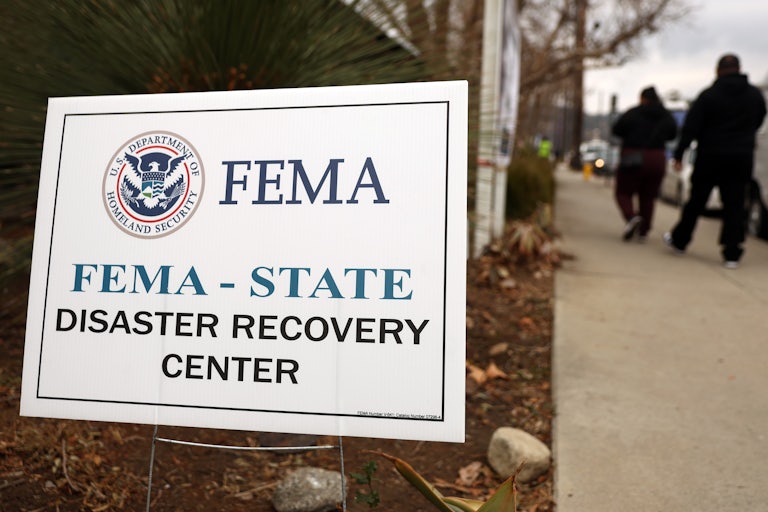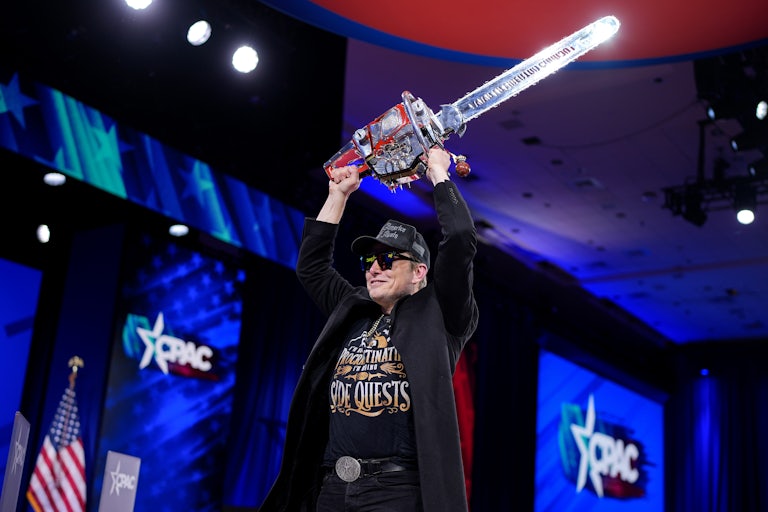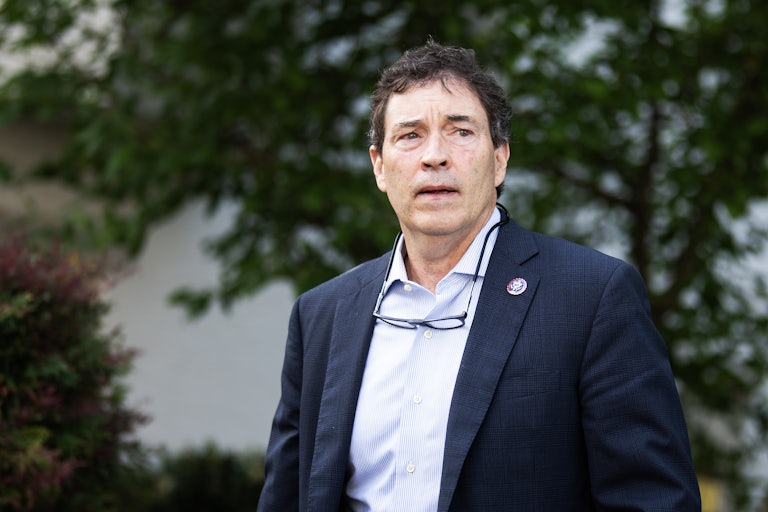Trump’s Latest Health Care Claim Will Make Your Head Spin
Donald Trump pushed a bogus claim about Amish people.

Donald Trump seems to have bought into a health conspiracy that encourages Americans to live more like the Pennsylvania Dutch Amish.
“The autism stat—and you hear different numbers, but it’s thousands. They say between 10 and 20 thousand,” Trump said Friday during a National Governors Association meeting at the White House. “If you go back 15 years ago, we had, like, nobody. It was one in 20,000. Now we have one in 34 … kids have autism.”
That is, however, not correct. In 2014, a report from the Centers for Disease Control and Prevention estimated that autism existed within the general population at a rate of one in 45. By 2023, the agency reported that the number for adults had remained the same, but that one in 36 children had the disorder.
But the president’s bold solution for skirting autism raised some eyebrows.
“The Pennsylvania Dutch, they don’t do anything and they’re amazingly healthy,” Trump said, offering the Pennsylvania ethnic group’s lifestyle as a potential model to avoid the disorder.
Trump could have gotten the idea from a conspiracy theory floating in right-wing spheres that claims Amish people have a longer life expectancy than regular people due to their unvaccinated status—which has already been thoroughly baked into autism conspiracies—and a steady diet of unprocessed milk.
(Reminder that pasteurized milk, which has been roundly condemned by health conspiracists, is just milk that has been warmed up. The pasteurization process doesn’t even reach a temperature that would boil the milk, but it does remove harmful bacteria such as salmonella, listeria, and e. coli that can collect on a cow’s udder or remain in its milk by way of its living conditions and exposure to manure.)
Despite being practically eradicated on the national stage thanks to vaccines, Ohio saw a sudden outbreak of measles in 2014. Nearly 400 cases of the highly contagious and potentially fatal disease were reported across nine counties, with 99 percent of those affected living in Amish communities, according to a retroactive study published in The New England Journal of Medicine. The sudden surge in disease actually prompted roughly a third of the community—some 10,000 people—to receive the measles jab.
Since their invention, vaccines have proven to be one of the greatest accomplishments of modern medicine. The medical shots are so effective at preventing illness that they have practically eradicated some of the worst diseases from our collective culture, from rabies to polio and smallpox—a fact that has possibly fooled some into believing that the viruses and their complications aren’t a significant threat for the average, health-conscious individual.
And the Amish don’t experience decreased rates of autism due to their lifestyles, either. Several studies have found that rates of autism within the Amish community are comparable to that of the general population, while other studies have indicated that the reclusive community’s cultural sensitivities around reporting may prevent autism from being identified early in Amish youth.
Developments in medical and therapeutic research have expanded the criteria for autism, effectively increasing diagnoses and making the disorder seem more prevalent than it was in the past.








